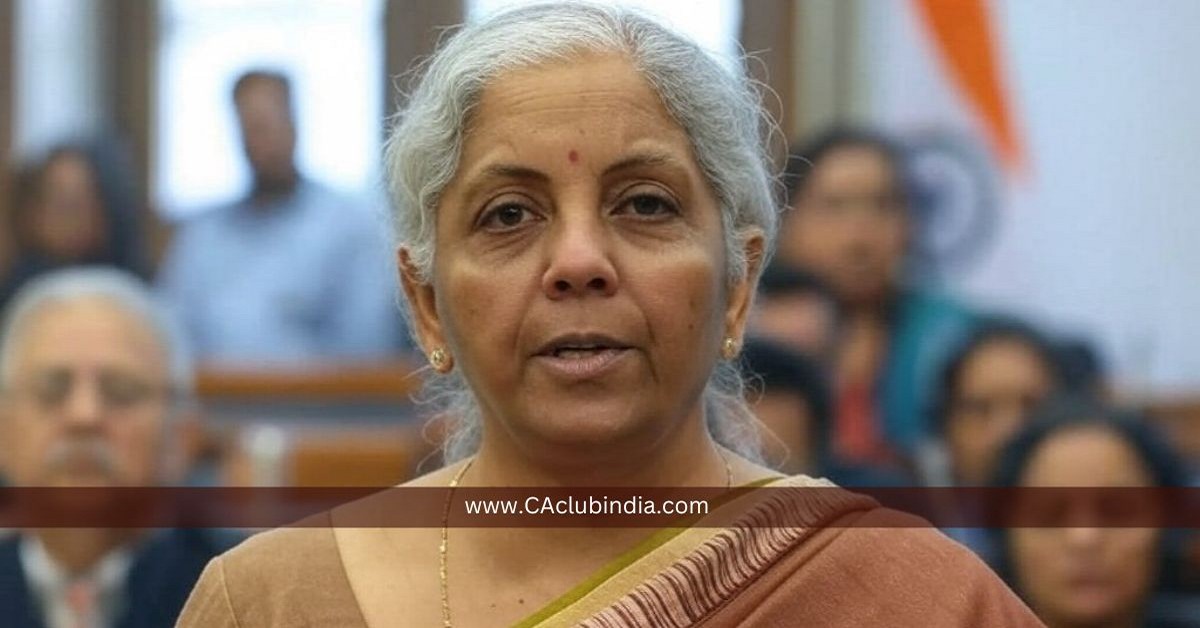Finance Minister Nirmala Sitharaman on Tuesday addressed the Rajya Sabha, affirming that the central government has delivered on its July 2024 budget promise by introducing a simplified and modernised framework for India's tax laws. Speaking during a discussion on the Income-Tax Bill, 2025 and the Taxation Laws (Amendment) Bill, 2025, the Finance Minister emphasised that the reforms aim to reduce complexity, increase transparency, and eliminate ambiguities that have led to prolonged litigation.
The Rajya Sabha passed both bills by voice vote, returning them to the Lok Sabha for final approval.

A New Chapter in Indian Taxation
The Income-Tax Bill, 2025, will officially replace the Income Tax Act, 1961, a law that has been in force for over six decades. Explaining the need for new legislation, Sitharaman noted that several sections of the old Act had become outdated, and its dense, legalistic language often resulted in interpretation issues and excessive litigation.
"The 1961 Act had a total of 819 sections, which we have now reduced to 536. Chapters have been brought down from 47 to 23," said Sitharaman, highlighting the scale of the simplification.
Simpler Language, Visual Tables, and Clearer Rules
One of the most groundbreaking changes in the new law is the replacement of lengthy legal text with tables and formulas to make interpretation easier.
- 39 new tables and 40 formulas have been added.
- These aim to simplify calculation methods and reduce dependency on professional interpretations.
"We have not changed any tax rates. This is about making tax laws easier to understand and apply," she stressed.
Reducing Disputes and Improving Compliance
The Finance Minister highlighted that the former law's complex wording and inconsistent drafting styles had led to a surge in tax disputes over the years.
"The complexity wasn't about the tax rates - it was about the language. That's what caused avoidable litigation," Sitharaman explained.
The move is expected to:
- Reduce litigation
- Enhance taxpayer understanding
- Improve voluntary compliance
- Speed up assessments and appeals
Massive Effort Behind the Drafting
Sitharaman also praised the Income Tax Department for its dedication in preparing the new law, revealing that the process required over 75,000 person-hours of work.
"The Income Tax Department worked very honestly and kept reviewing and correcting. This wasn't an overnight effort," she added.
Taxation Laws (Amendment) Bill Also Passed
Alongside the Income-Tax Bill, the Taxation Laws (Amendment) Bill, 2025 was also cleared. This bill focuses on updating related provisions across other tax statutes to align them with the new Income Tax framework.
Conclusion
With the passage of the Income Tax Bill, 2025, the government has taken a major step toward tax reform in India. While keeping tax rates unchanged, the law now offers a simpler, clearer, and more transparent structure that both professionals and ordinary taxpayers can navigate more easily.
The bill reflects the government's intent to build a modern, efficient, and fair tax ecosystem - aligned with the realities of a fast-changing economy.









 CAclubindia
CAclubindia
